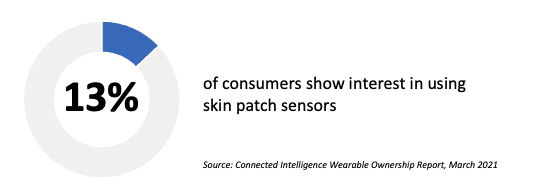
Fitbit refreshes kids tracker
It’s been almost two years since Fitbit launched the Ace 2 tracker, aimed at children. In tech years, that’s an eternity and so it’s not really a surprise that Fitbit has unveiled the new Ace 3. It has many of the same features as its predecessor, but comes with an eight day battery life (up from a previous five days), some sportier colors and new Minions-themed accessory bands (due out later in the summer. Importantly, Fitbit says that this is first of its Spring product launches and, of course, the first since Fitbit became part of Google.
The NPD Take:
- Fitbit was long considered a “cool” accessory for kids, but we wonder if those days are now behind us. Sure, at the lower end of the age group (the Ace 3 is focused on six years and older) it will appeal, but how soon before these younger kids want a smartwatch?
- Step tracking and sleep habits seem dated. Parents are more likely to want to know where their little urchins have been (or are) via GPS tracking, than how many steps it took them to get there.
Tag with wellness
At the complete opposite end of the spectrum, Tag Heuer has launched its own wellness app for its Connected watches. While the Tag watches already had wellness tracking (they are Wear OS devices), launching its own app allows Tag to better control the look and feel of the over experience, a very important aspect when one is spending $1500+ on a smartwatch. The app has all the usual features, such as continuous heart rate tracking, calories burned and exercise intensity and provides a weekly summary.
The NPD Take:
- It’s a small incremental enhancement to the overall device, but a huge step in the right direction as Tag takes closer ownership over the entire wearables experience. What we would like to see is for the company to focus on privacy, highlighting the benefits of this solution (home-grown apps) that (potentially) keep the exercise stats more private than other solutions.
Sweat with Gatorade
Gatorade has taken a step into the wearables market, launching sweat tracking skin patches. The patches come in packs of two for $25 and each patch is a single use device. The idea is that you slap the patch on your inner forearm and start your workout. At the end, dye will have started to spread along a “track” on the patch and, when you scan the patch into the Gatorade app, it will tell you how much sweat you lost, and what you should do about it. Surprisingly, the short answer is not a blatant “drink Gatorade” but you can almost hear it whispering to you.
The NPD Take:
- Skin patches do have potential, but need to be at a much lower price for a disposable product. At $12.50 per patch, most people will not be slapping a fresh patch on every time they work out. As such, we suspect that Gatorade would be better giving these away as promotional products with a six-pack of Gatorade.
- Having said that, we will be publishing a full blog on these products soon, as they do have some interesting merits